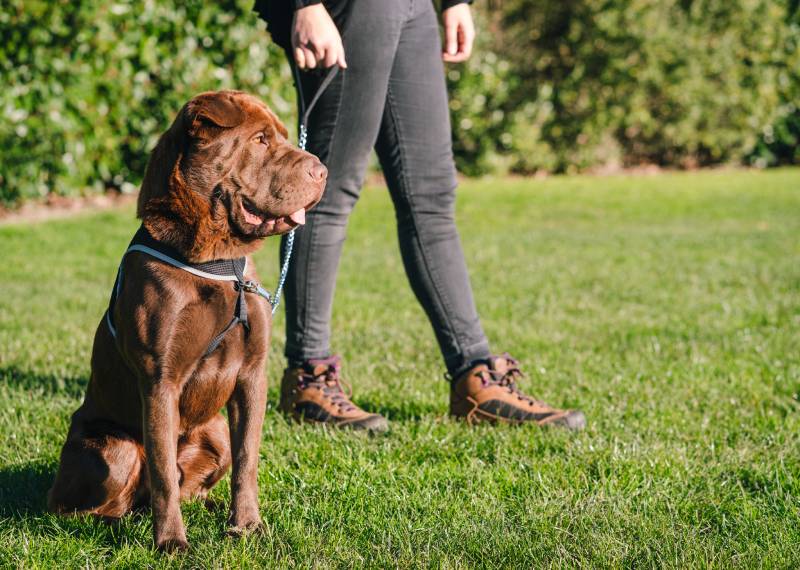Do Great Pyrenees Bark a Lot? Facts & FAQ
Updated on
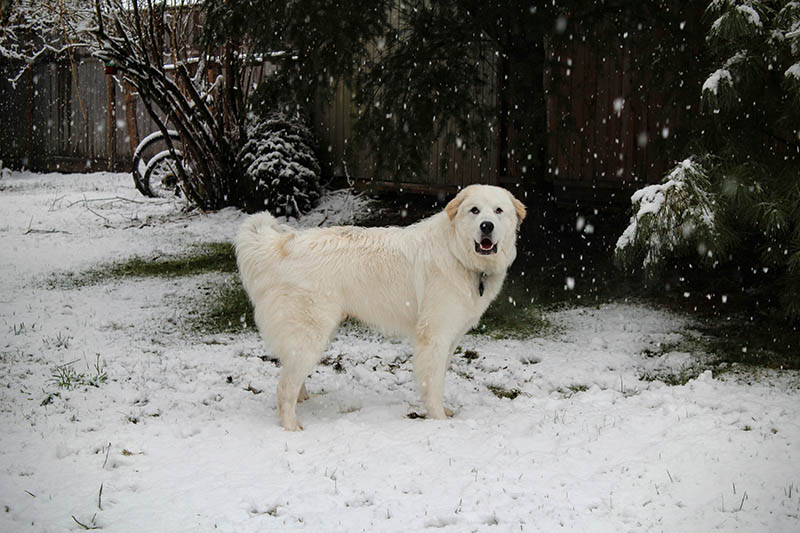
Great Pyrenees are known for their calm, well-mannered temperaments and devotion to their family members. However, Great Pyrenees are also known to be big-time barkers, and if you have a grumpy neighbor, you may have a problem on your hands.
Read on to learn more about why Great Pyrenees dogs bark and to find our tips on how you can address your pup’s barking problem.
Do Great Pyrenees Bark a Lot?
Yes, this breed is known for its love of barking, although it can vary among individuals. Pyrs will bark instinctively and out of emotions like fear, excitement, intimidation, and others. Additionally, the breed is known (and loved) for its protective nature, so it shouldn’t be too much of a surprise that it often engages in reactive barking.
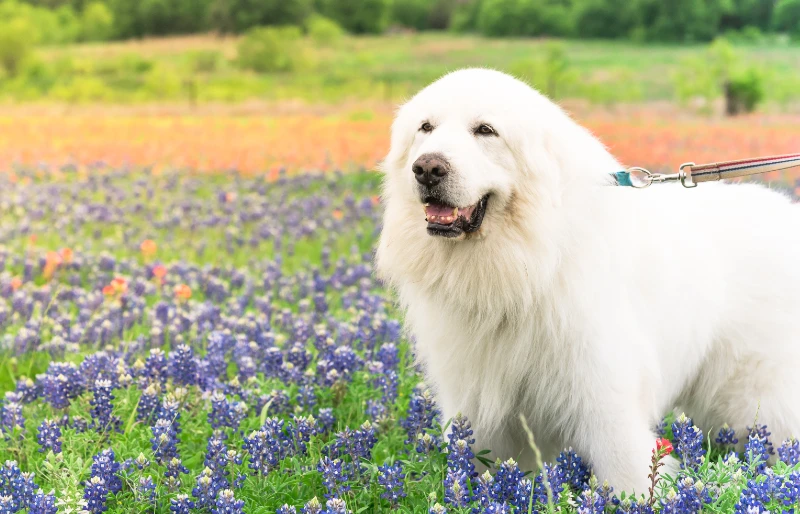
Why Do Great Pyrenees Bark So Much?
To understand why your dog barks so much, educating yourself on the breed background is important. Pyrs were bred to take care of livestock, specifically flocks of sheep. Your dog’s ancestors stayed outdoors all day and night, regardless of the season. They literally spent their entire lives living alongside and protecting animals.
This may also be why your dog is more alert at night. While they’re not nocturnal, most are highly active at night, at least in comparison to other dog breeds. This is part of what makes them such great guard dogs.
The Top 9 Tips on How to Stop a Great Pyrenees From Barking
1. Familiarize Yourself With Their Triggers
Addressing your Pyrs reactive barking should begin with identifying the triggers that cause him to bark in the first place. Observe him closely and even keep a detailed diary of his barking outbursts so you can draw conclusions about what situations and stimuli are causing him to react.
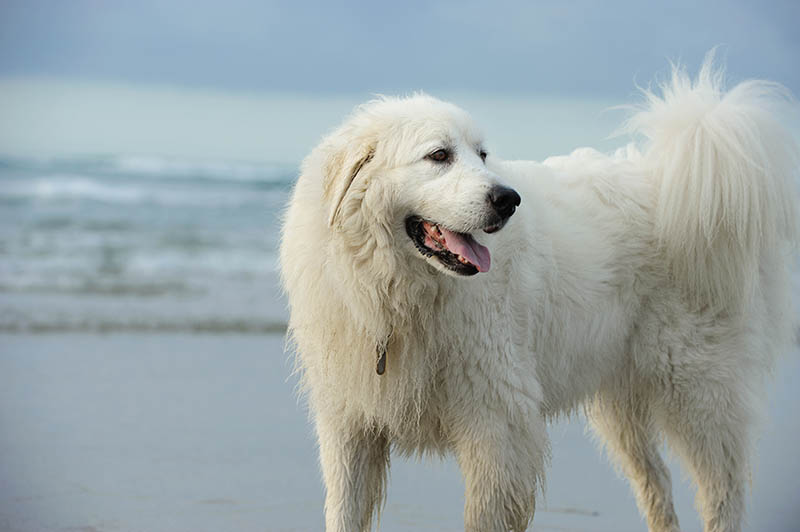
2. Desensitization
Once you know what is triggering the barking, you can begin with desensitization. This is a gradual process that requires you to expose your pup to his triggers in a safe manner and from a comfortable distance. This will allow him to become accustomed to the stimulus or situation without reaction.
3. Redirection & Counter Conditioning
Redirection requires you to take your pup’s attention away from whatever he is focused on and bring it back to you. Once his attention is off of the stimuli, you might offer a high-value treat to counter-condition him.
So, if your dog is in the midst of a barking frenzy because a cat walked by the window, you can condition your dog to look at you when the cat walks by next time, as he will learn that seeing the cat means he will get a yummy treat. By pairing the trigger (in this case, the cat walking by) with something positive (the high-value treat), your dog will associate the stimulus with positive things instead of fear or anxiety.
4. Positive Reinforcement
Rewards go a long way when teaching your dog to bark less. Reward him whenever he remains calm and quiet in situations he would otherwise react to with barking. What you reward him with will depend on what your dog considers high value. It may be a tasty, high-value treat, a good play session, or tons of verbal praise.
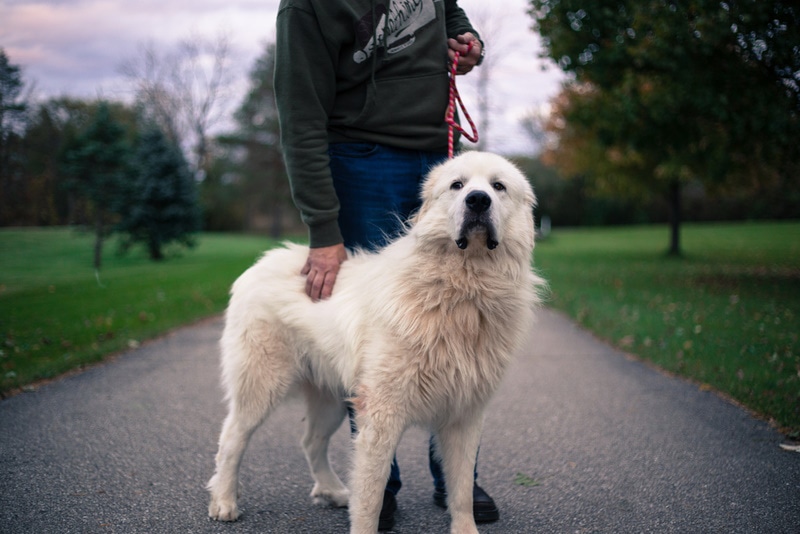
5. Provide Adequate Stimulation
A physically and mentally stimulated Great Pyrenees is much less likely to bark than his less exercised and bored counterparts. Ensure your pup has enough physical activity and mental stimulation by providing plenty of opportunities for exercise and play sessions.
6. Keep Your Environment Calm
A dog’s sense of hearing is much more sensitive than ours, so a calm, quiet environment can help keep your Pyrenees’ barking to a minimum if he’s reacting to being overstimulated. Try to create a tranquil setting by providing him with a cozy bed in an area that’s just for him if you have a lot of things going on in your home. You might even play some quiet classical music, as studies show it can help reduce agitation in dogs.
7. Make Necessary Environmental Adjustments
Once you know what’s triggering your dog’s barking, you need to make the necessary adjustments to his environment to minimize this behavior. For example, if he’s barking when he sees people walking by the window, you may need window films to obscure his view of the outside world or install baby gates to keep him out of rooms with windows facing the street.
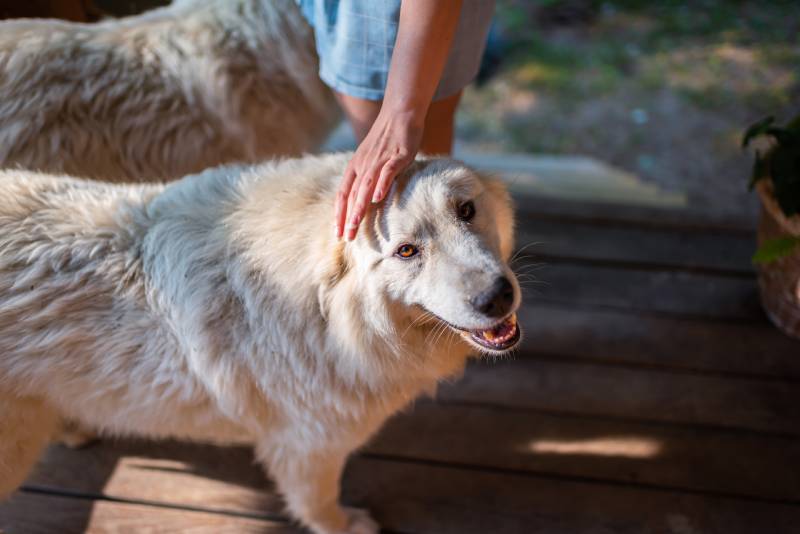
8. Let Them in at Night
As mentioned above, most Pyrenees are active at night and on high alert, as this is when most predators roam around your home. If you keep him outside at night, you might consider bringing him in for a few nights to see if that keeps his nocturnal hypervigilance and reactive barking to a minimum.
9. Training
Pyrenees are a highly independent breed and can be difficult to obedience train. Many owners may not be up to the challenging task of training their dogs, which could play a part in inappropriate barking behaviors. All dogs can be trained, but it sometimes takes the expertise of a professional to instill good behaviors in particularly difficult breeds. If you’ve given up on training your Pyrenees, we recommend contacting local dog trainers to see what they suggest and to learn more about their class offerings.
Final Thoughts
The Great Pyrenees is a fantastic family dog with many redeeming qualities, but they certainly aren’t the quietest breed. Their history as livestock guardians makes them highly reactive, on edge, and prone to barking. If you own a loud Pyrenees, know there are things you can do to out-train his reactive behaviors. It may take time and patience, but it is worthwhile. The result is a well-trained, well-behaved Pyrenees who will only bark to alert you of incoming predators. Talk about a great guard dog!
See Also:
Featured Image Credit: Ssirounarev, Shutterstock



